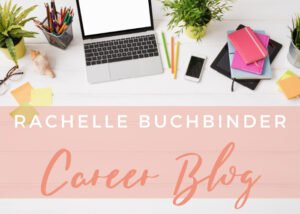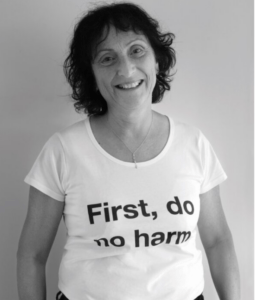
Meet Prof Rachelle Buchbinder, academic rheumatologist and head of the Musculoskeletal Health and Wiser Health Care units in the School of Public Health and Preventive Medicine, Monash University. Here she talks about waste in the medical system, evidence-based practice and making friends around the world.
Rachelle is also last year’s recipient of the Australian Academy of Health and Medical Sciences Outstanding Female Researcher Medal – congratulations! Applications for the 2024 award close on 1 March, as well as the Jian Zhou Medal and Outstanding First Nations Researcher Medal – who could you nominate?

What is your current role and how did you get to be there?
I am head of the Musculoskeletal Health and Wiser Health Care units in the School of Public Health and Preventive Medicine, Monash University, and a practising rheumatologist.
I grew up in south-eastern Melbourne and went to the local high school. My parents were child Holocaust survivors who met in their late teens and married young. Because they missed out on educational opportunities, ensuring my sister and I could go to university was important to them. My father had health problems from his late twenties, and I think this was one of the reasons I wanted to be a doctor. In fact, he had a heart attack the night before my first year 12 exam which almost derailed my chances of getting into medicine.
I studied medicine at Monash University and did my undergraduate clinical training at Prince Henry’s Hospital, and then internship and residency at the Alfred Hospital. I then did physician training specialising in rheumatology and started a PhD, but gave this up after a year – giving rats arthritis really wasn’t my thing. My husband (a medical oncologist) wanted to go overseas for postgraduate training (we met at medical school), and I just went along with it, although I wasn’t so keen to leave my family and by then we had an 18-month-old son.
We spent 3 years in Toronto, Canada – I did further rheumatology training at the Wellesley Hospital, but what completely changed my career path was completing a Masters of Clinical Epidemiology at the University of Toronto. The lightbulb moment was really understanding that clinical epidemiology is the basic science of clinical medicine – it is not possible to be a good clinician without an in-depth understanding of these principles. And I fell in love with clinical research and asking important clinical questions that have the potential to improve care and patient outcomes.
We had our second son in Canada (born on Canada Day in 1991) and returned to Australia in 1993. Our third son was born in 1995. I started part-time in the School of Public Health and Preventive Medicine at Monash University upon my return to Australia, and I also started clinical rheumatology practice. I have always deliberately combined clinical practice (currently 1 day per week) with research, and most of my ideas about research have come from seeing patients. I completed a PhD by publication in 2006.
How does your work contribute to the field and/or overall health and wellbeing of the community?
Much of my work has determined whether treatments really work or not. In recent years, I have studied treatments that have slipped through the system without first being properly evaluated. Some of these have been found to be ineffective and some have been found to cause more harm than good. This has led to my current research program investigating ways of reducing low-value care. It has been estimated that about a third of medical care is of no value, while another 10% is harmful. Our current medical system is simply not fit for purpose. There are problems of overmedicalisation, overdiagnosis and overtreatment. As a clinician, I see the waste from performing unnecessary tests and prescribing unnecessary medicines and procedures, and the harms that this causes. While many doctors are aware of this problem, patients and the public need to be better informed.
This is why my colleague and friend, orthopaedic surgeon Ian Harris, and I wrote a book published in 2018 called Hippocrasy: how doctors are betraying their oath – published by NewSouth Publishing. We wanted to raise awareness of these issues and start a conversation about it. In 2018, we spent 4 weeks at the Bellagio Center on Lake Como in Italy to write the first draft, thanks to a prestigious Rockefeller Foundation Academic Writing Fellowship. This was an incredible experience.
What is a project you would love to get off the ground or a skill you would like to develop, if you had the opportunity?
I would love to improve education of the public and young people about the limits of medicine, so that when a medical problem arises, they have the knowledge and skills to ask the right questions and are able to be a bit more sceptical about the advice they receive. I think health literacy is something that should be taught in school, alongside critical appraisal skills to be able to distinguish facts from fiction (of course, increasingly important now in general with all the misinformation that people have access to). I think we also need to better educate our future doctors and other healthcare practitioners so that they practice evidence-informed medicine.
What are your loves outside of work?
My loves are my family including my husband, three sons and their partners, my two adorable grandchildren, my extended family including my nieces and nephews and great nieces and great nephews, and my friends which include many research collaborators. While I don’t like air travel (read fear of flying), I really love meeting up with my national and international collaborators at meetings and making time for catching up. I also really enjoy mentoring the next generation of researchers. I love swimming and I also enjoy going on hikes and adventure holidays – last year we did the Alta Via 1 in the Dolomites in Italy over 10 days going from hut to hut, one of the hardest hikes I have ever done.
What is one piece of advice you could pass onto others following their own career in health and medical research sector?
I am not sure that I can give one piece of advice except to keep looking for your niche and take chances. My career path was serendipitous, and I didn’t really plan it. I tend to say yes to many things (although people tell me I need to practise saying no more often). I like treating patients one on one, but clinical research also provides the opportunity to improve outcomes for many more people. I love the process of thinking about research and collaborating with likeminded people. One rewarding bonus of clinical research is being able to travel to present your work and making friends with people from all over the world. It is also important to make time for exercise and for fun.
